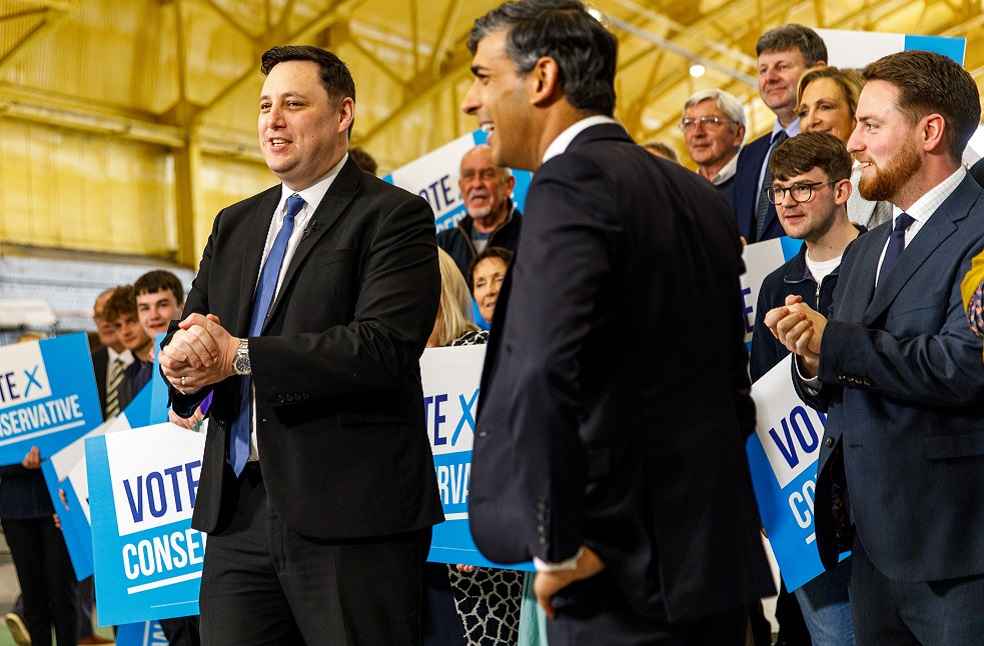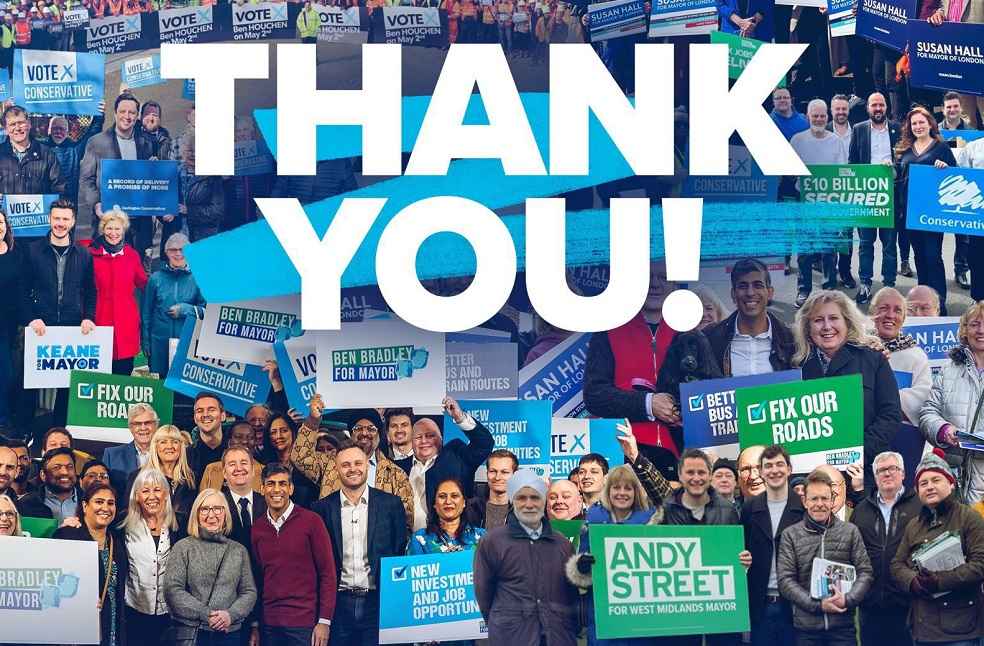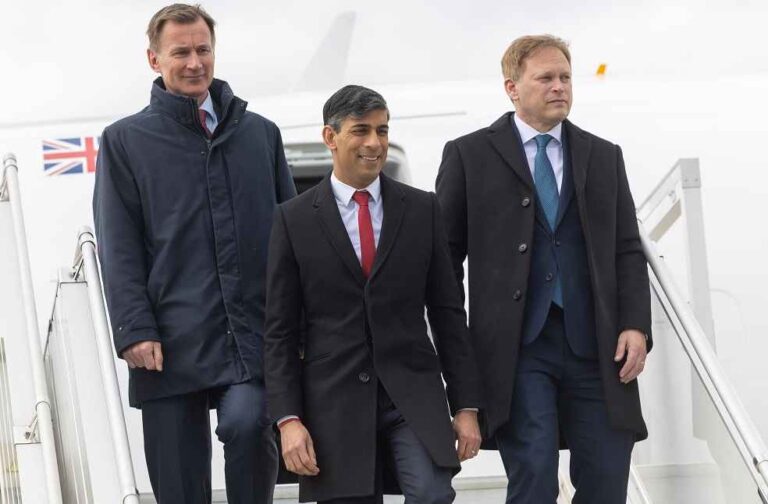Birmingham: In the recent local elections across England and Wales, Prime Minister Rishi Sunak’s Conservative Party faced severe setbacks, signalling potential troubles ahead for the party in the forthcoming general election.
The results from Thursday have left the Conservatives with a loss of over 470 council seats—nearly half of those they defended. Additionally, they lost the Blackpool South parliamentary seat to Labour in a significant by-election swing, and failed to secure nine out of ten metro mayor positions, including three newly established posts.
While Conservatives found a small silver lining as Lord Ben Houchen was re-elected as Tees Valley mayor, the overall picture remains bleak. The loss of Andy Street in the West Midlands as mayor despite a personal strong performance underscores the challenges faced by the party. Street’s defeat capped a robust showing by the opposition Labour Party, which experienced its own setbacks losing council seats in predominantly Muslim areas due to dissatisfaction with its position on the war in Gaza.

The elections have raised serious questions about the Conservative Party’s future direction and leadership. A right-wing faction within the party had hinted at a leadership challenge against Sunak, which seems to have lost momentum for now. However, Sunak’s position remains precarious as the party struggles to regain credibility and appeal to centrist voters, who are concerned about the cost of living and the quality of public services.
The Labour Party, led by Sir Keir Starmer, interpreted their performance as a caution against complacency, urging supporters to remain engaged. Meanwhile, some Conservatives are advocating for a shift towards more right-wing policies, including stringent measures on migration and other populist strategies. Yet, such a move could alienate more moderate voters, potentially harming the party’s prospects in more centrist constituencies.

As Britain faces a call for a fresh start, the results reflect a broader discontent with the current state of politics. With an election mandated by January, Sunak’s strategy appears to be to delay the vote in hopes of an economic upturn that might improve the party’s standing.
However, the prevailing sentiment suggests that the country would benefit from a resolution sooner rather than later, ending a period marked by uncertainty and lacklustre governance.



